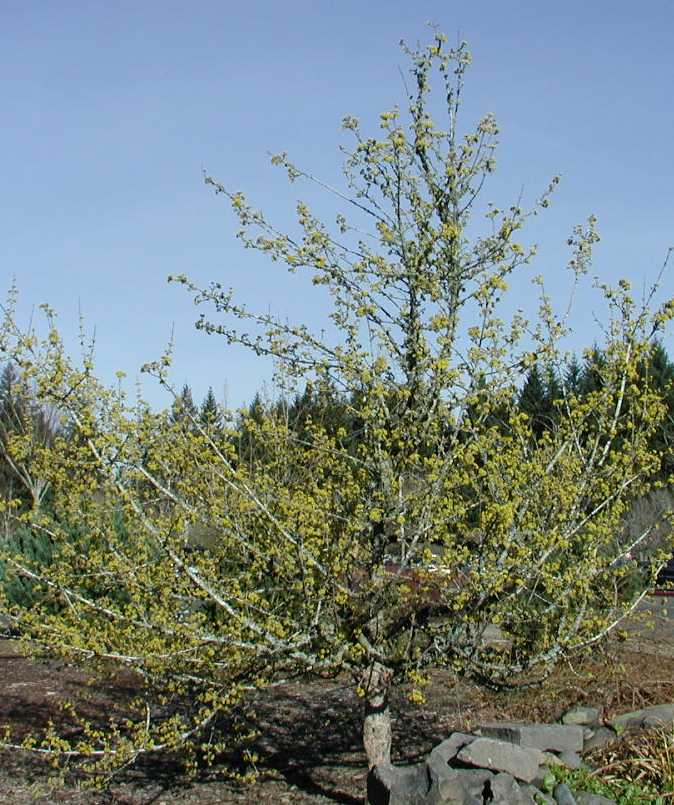| Botanical Name: Cornus mas | |
| Common Name: Corneliancherry Dogwood |

-
Anatomy
-
Culture
-
Design
Plant Type
Tree, Shrub
Height Range
12-25'
Flower Color
Yellow
Flower Season
Spring
Leaf Color
Green
Bark Color
Brown, Grey
Fruit Color
Red
Fruit Season
Summer
Sun
Full, Half
Water
Medium
Growth Rate
Moderate
Soil Type
Clay, Loam, Rocky, Unparticular
Soil Condition
Average, Rich, Poor, Well-drained, Moist
Soil pH
Neutral
Adverse Factors
Messy
Design Styles
Ranch, Native Garden, Woodland
Accenting Features
Multi-trunk Tree, Showy Flowers
Seasonal Interest
Winter, Spring, Summer
Location Uses
Background, Shrub Border, Foundation, Patio, Walls / Fences
Special Uses
Hedge, Screen, Naturalizing
Attracts Wildlife
Birds
Information by: Stephanie Duer
Photographer: JJ Neilson Arboretum
Photographer: JJ Neilson Arboretum
-
Description
-
Notes
Corneliancherry is a deciduous, small, multi-stemmed tree or shrub, reaching about 20 feet tall and wide, with a rounded crown and low branching structure. Clusters of small yellow flowers appear March and April, and show the best against a dark background such as a brick or darkly painted wall. Red fruit follows, much enjoyed by birds, and it is edible for making preserves. Fruit can be messy, so underplant with groundcover to minimize cleanup. Leaves are green, with yellow fall color. Bark is exfoliating, with colors in the warm greys to brown.
Plant in full to part shade in well drained, organic soils (will grow in full shade but the flower and fruit production will be less). Pruning is required to make and keep it more tree-like (see Guides). It does sucker, which depending on the location, can be either an asset or liability. Not a common dogwood, but well suited to shrub borders, in a bird garden, or more natural landscape.